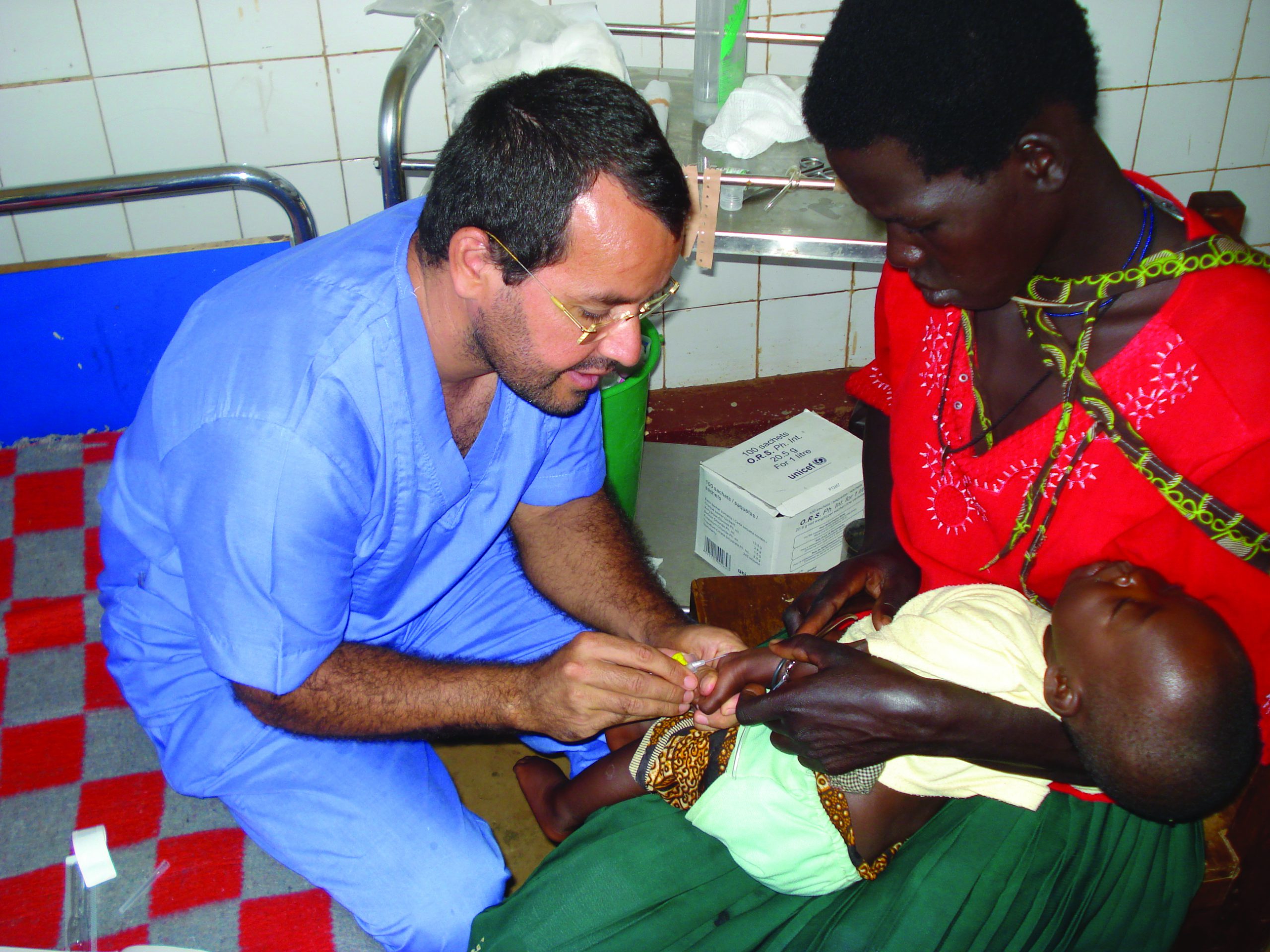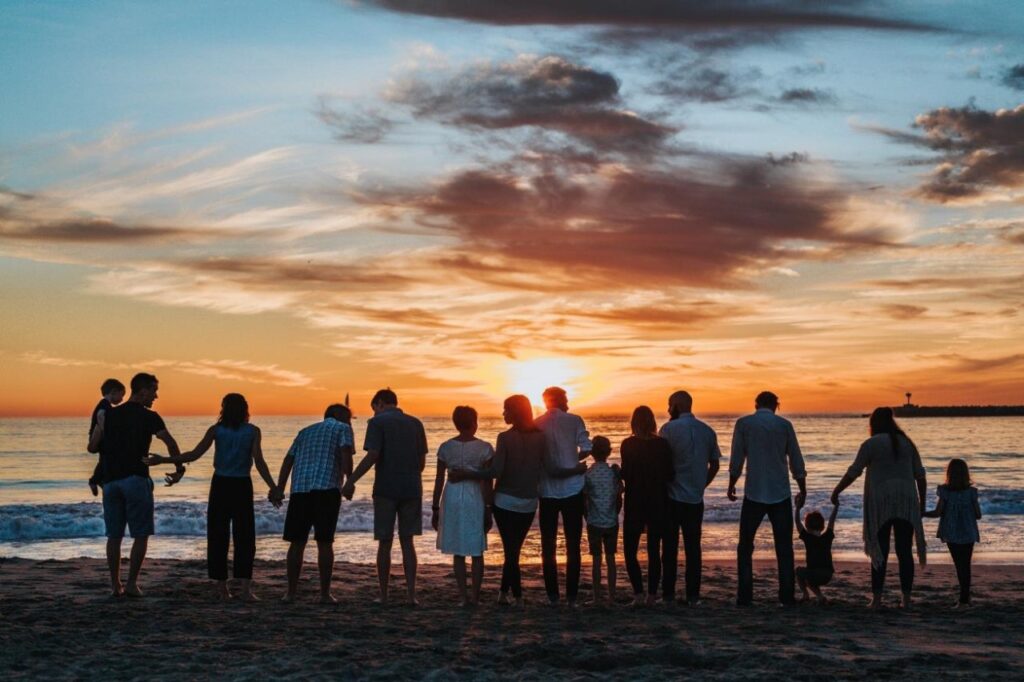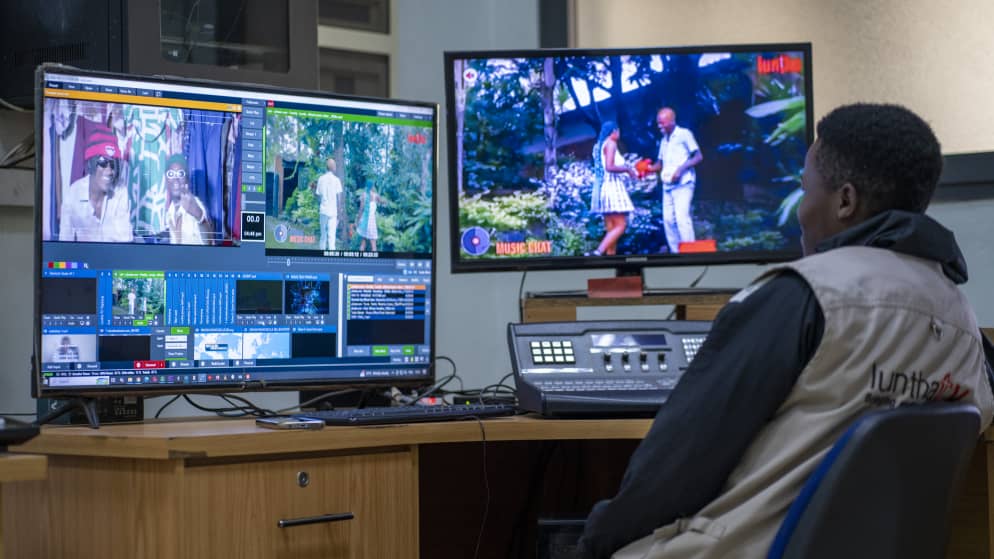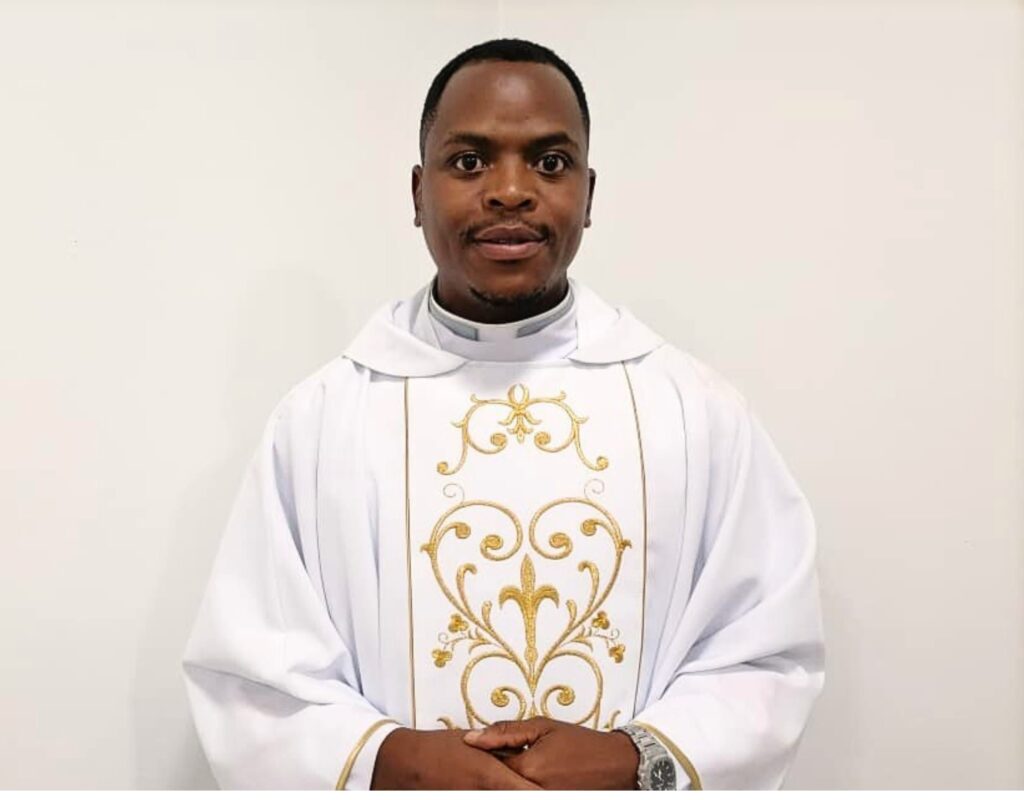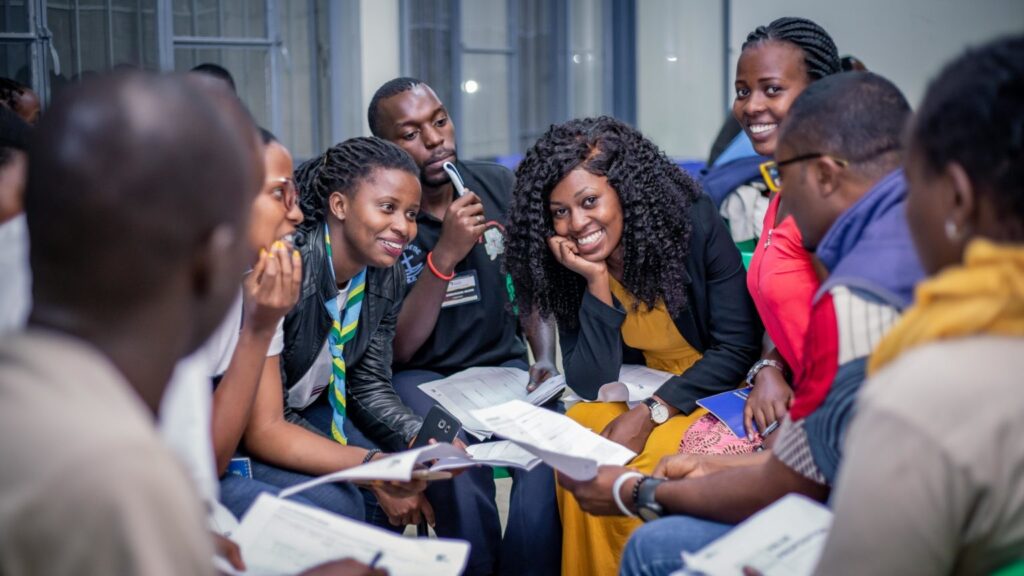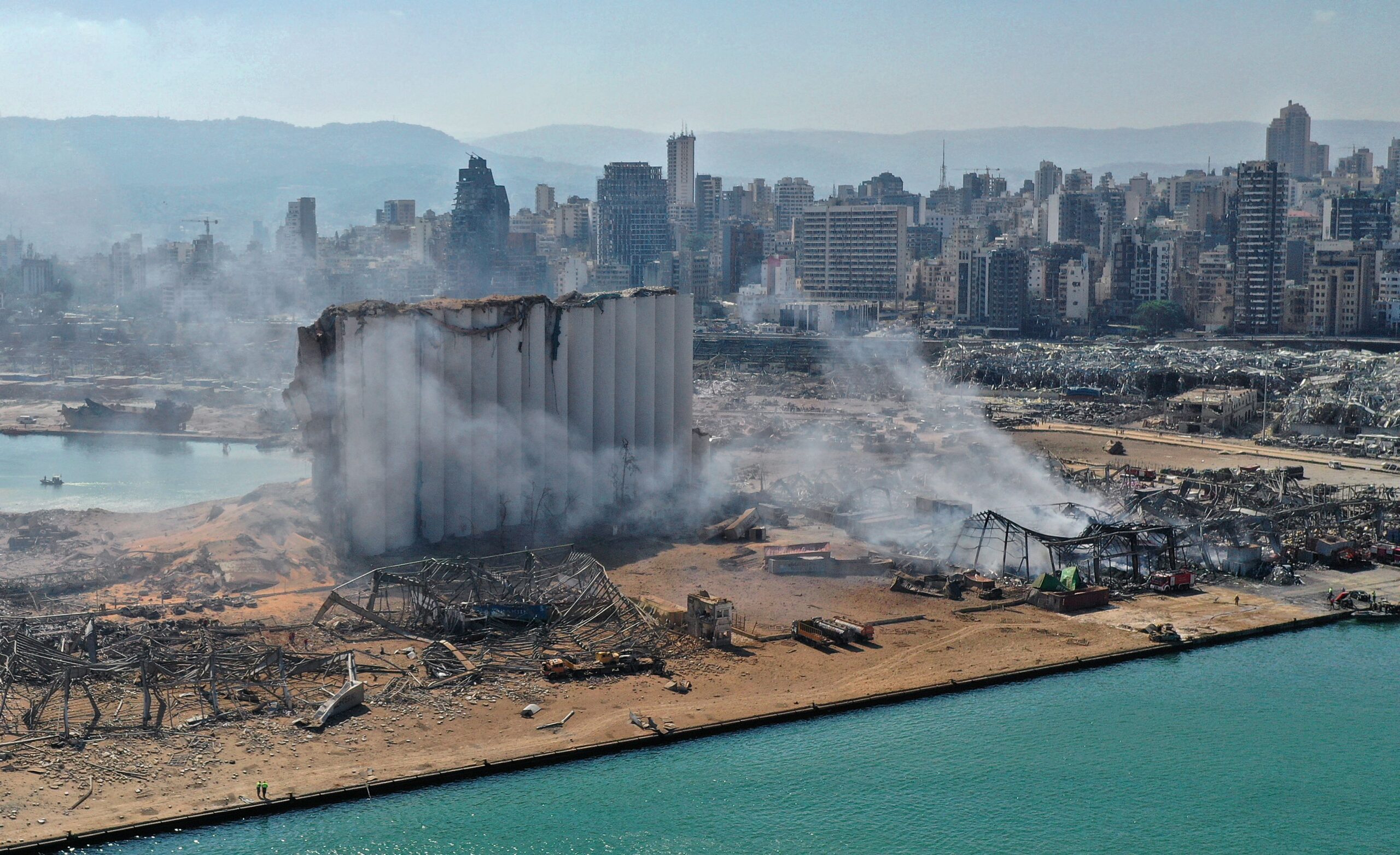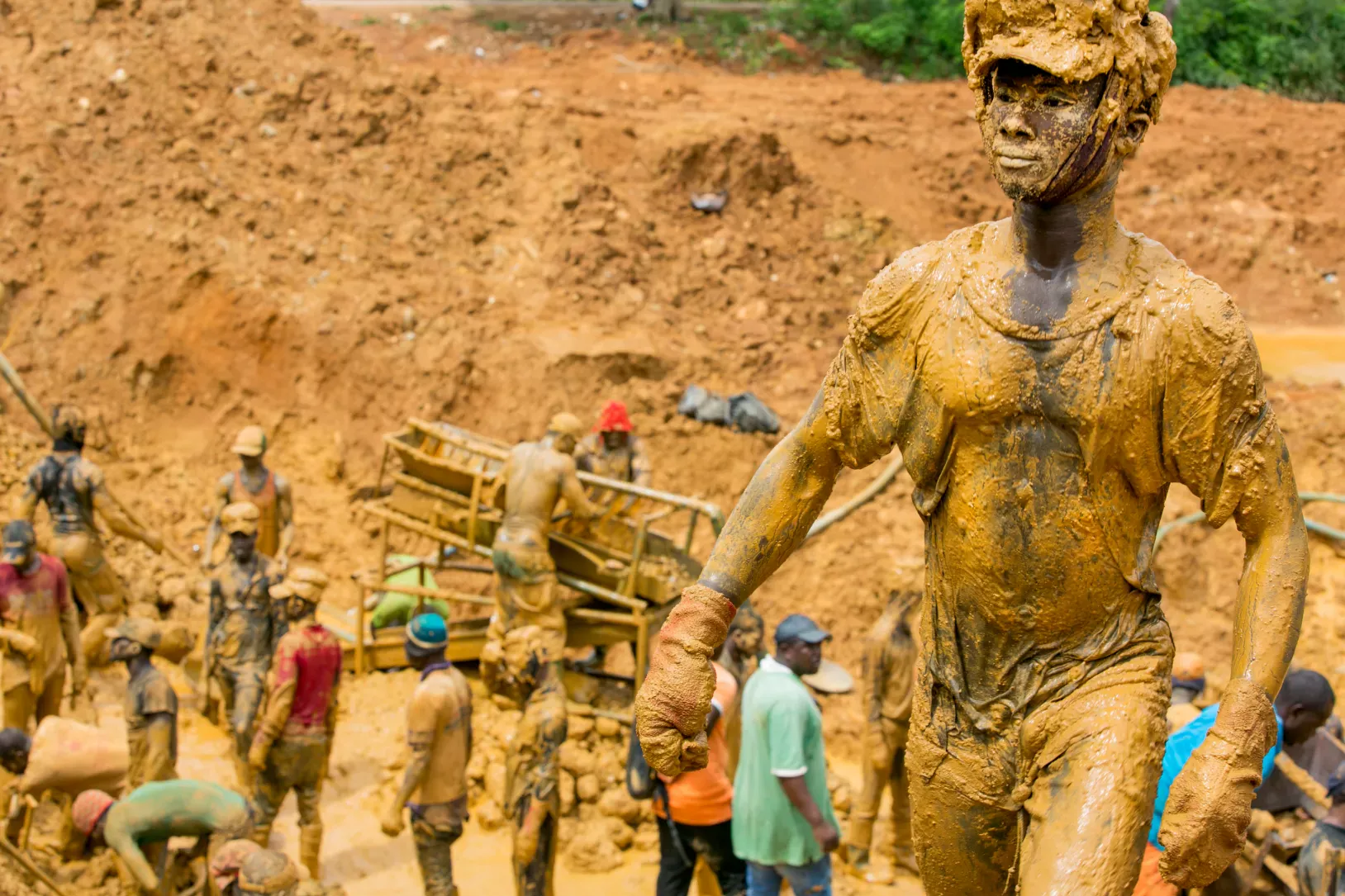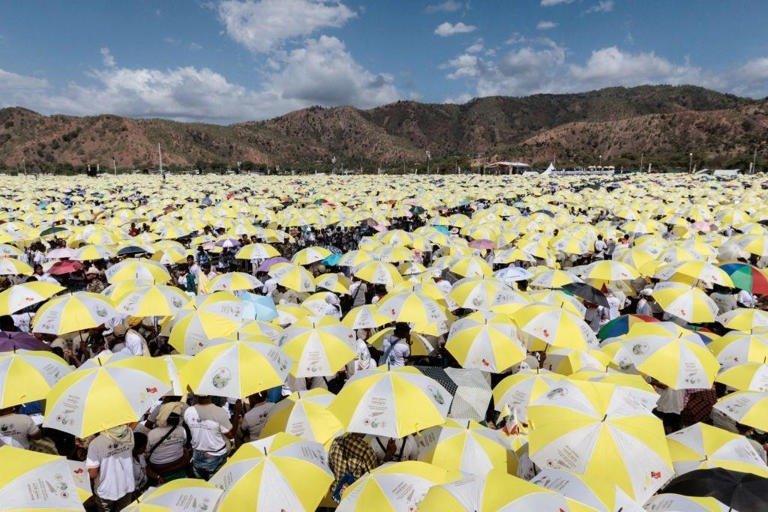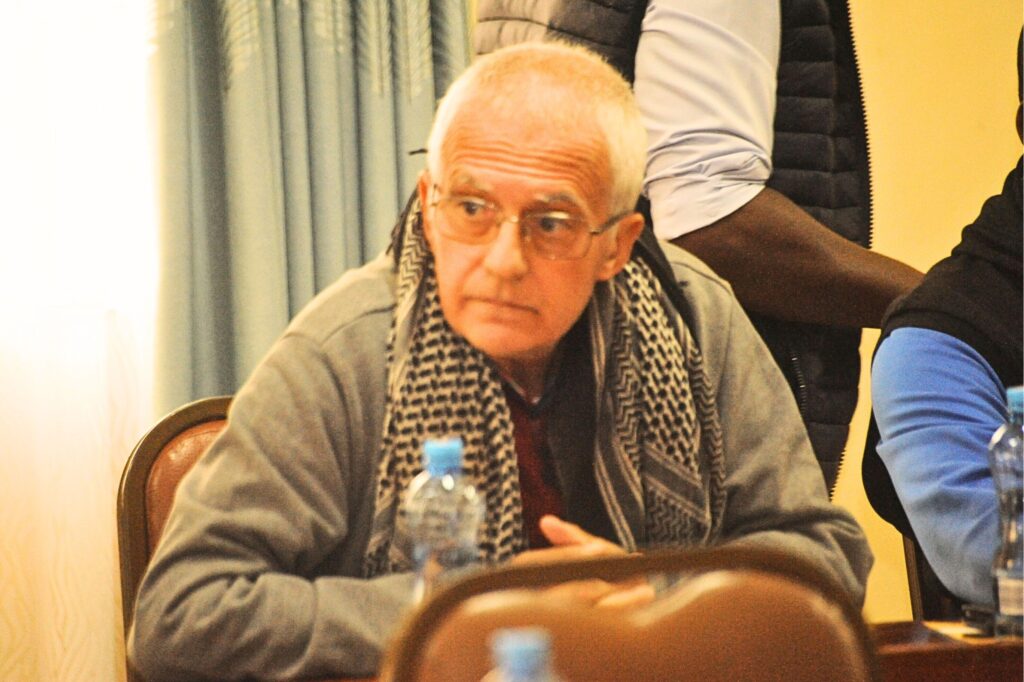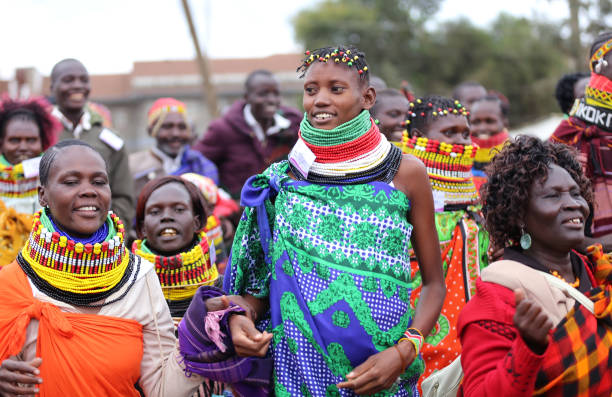After 20 years of ministry as a missionary doctor, Juan Carlos still looks forward to what God has in store for him every day. His great joy is the opportunity to foster the gift of life at all levels, both spiritual and material. The gratitude of the people he lives with is his reward already on earth.
By Juan Carlos Salgado, Mccj
I was born in Uruapan, the second largest city in the Mexican state of Michoacán, in a devout Catholic family of 11 children. I grew up in a very religious environment, where I learned to love God and the Church.
I met the Comboni Missionaries when I was in primary school. One of them used to visit our school. His stories about their missionary work in Africa fascinated me. Yet, the true desire to become one of them emerged during high school, when a classmate lent me a book, entitled Young man, you are called to live. It was a ‘vocational guidance for youth’ paperback, which reached out to me. Its contents ignited in me the flame of missionary vocation.
The following year was an intense period of vocational discernment, and, in 1988, I was accepted in the Comboni Postulancy, in Xochimilco, a borough of Mexico City. I still remember the day of my joining the Comboni Institute as one of the happiest days in my life. Everything around me told me that I was in the right place. That happiness continued all through the periods of postulancy and novitiate.
Drops of hope
Whenever I had the chance, I would visit poor families in one of the many outskirts of the capital. During the holidays, instead, I went for pastoral work in Chalco Valley, a deprived neighbourhood of Mexico City, which lacked basic services. People lived in iron sheet huts or wooden cottages. The lucky few had built a quarter of simple houses made of brick, with iron sheet roofing. I shared the sufferings of those people, adapting myself to live with very precarious means. Indescribable was my joy when I was able to instil in them a little hope.
 I am not sure about you, but I could not live in a world without hope. And there I was, in a human environment marked by many difficulties and a mood of negativity, fear and anxiety. The one driving force that could give them renewed energy was hope. Hope was like a ray of light for them. A drop of it could make them survive their ‘today’ and see their dreams for ‘tomorrow’. And that was sheer bliss for my heart.
I am not sure about you, but I could not live in a world without hope. And there I was, in a human environment marked by many difficulties and a mood of negativity, fear and anxiety. The one driving force that could give them renewed energy was hope. Hope was like a ray of light for them. A drop of it could make them survive their ‘today’ and see their dreams for ‘tomorrow’. And that was sheer bliss for my heart.
I started my formation as a candidate for priesthood, following some courses in philosophy. However, there was in me an indefinable something that convinced me that my real call was different: I was attracted by the Comboni missionary vocation, but as a brother and not as a priest. After a long discernment and with the help of my formators, that option became very clear in me. Therefore, when I entered the novitiate, I continued my training as a candidate for brotherhood.
After making my first religious vows in May 1994, I took a degree in nursing at Monterrey University, Mexico. In 1998, I was assigned to the Comboni Brothers Centre in Nairobi, Kenya. After a course in English language, I enrolled to a diploma course in Social Ministry at Tangaza University College. On completion of the course, I went back to Mexico for a period of holiday. On 8th September 2001, I took my perpetual vows as a Comboni Brother. The best gift I received that day was the letter of assignment to my first missionary field: the Democratic Republic of Congo.
Doctor – great work
Less than a month later, I flew to Kinshasa. The following day, I was sitting in a class of a course in French language. As soon as I was able to get by in the official language of the country, I took up Lingala, spoken throughout the north-west of DR Congo and a large part of the Republic.
After almost a year, I was sent to the rural hospital of the Catholic mission of Duru, a small village north-east of Congo, 25 km from the border with South Sudan. My assignment was to manage the hospital, but the staff was painfully scarce. Thus, I was more than pleased to be on call, take night shifts, work in the pharmacy, consult patients and attend operations. The best moments were the planned visits to neighbouring villages to vaccinate children and pregnant women, and give health education talks. I was asked even to teach English in a near-by secondary school. Great fun, indeed! A thing in which I took great pleasure was organising spiritual retreats for groups of catechists, teachers and nurses.
 In 2004, I went to the newly founded Gulu University School of Medicine. I wanted to become a doctor, specialised in tropical diseases. While attending the courses, I took any possible opportunity to do apostolate with other university students. We formed a prayer group and organised retreats, conferences, pilgrimages and other activities to keep our faith and that of the others alive.
In 2004, I went to the newly founded Gulu University School of Medicine. I wanted to become a doctor, specialised in tropical diseases. While attending the courses, I took any possible opportunity to do apostolate with other university students. We formed a prayer group and organised retreats, conferences, pilgrimages and other activities to keep our faith and that of the others alive.
In 2009, I was posted to Mungbere Anualite Hospital, in Wamba diocese, managed by the Comboni Missionaries. It had 140 beds in five departments: Medicine, Surgery, Obstetrics, Paediatrics and Maternity. Seven dispensaries – located between 10 and 54 km from Mungbere – ensured medical assistance to a large portion of the people of the region. The supervision of the seven dispensaries was my main duty.
A year later, I was transferred to Bondo, where I am still at present. The local hospital is rather small: 2 doctors, 18 nurses, 70 beds for admitted patients. I spend a lot of time visiting the many dispensaries of the zone, coordinating their work and meeting the nursing personnel.
My day begins at dawn. I meet with the night-shift nurse, I see each one of the patients in the hospital, and then I go to the outpatient clinic to see those who have come for medical consultation. If there are cases that need surgery, they are scheduled according to urgency. We carry out at least two operations every day.
Difficulties and joys
In almost 20 years of missionary life, I have gone through countless experiences, both sad and joyful. One day, a baby of 8 months was brought to hospital with acute pneumonia. He was almost unconscious, breathing like a fish out of water. He really sounded as he was on the verge of death. He was bapt ised with the name Étienne (French for Stephen). The priest, after anointing him with the blessed oil of the sick, pinned a Miraculous Medal of the Virgin on his vest and went away shaking his head. The next morning, when I arrived at the hospital, I found the child awake, breadhing without fatigue and avidly feeding on his mother’s breast. While many were whispering that the grace of Baptism had worked a miracle, I remained silent, but my joy reached heaven’s gate.
ised with the name Étienne (French for Stephen). The priest, after anointing him with the blessed oil of the sick, pinned a Miraculous Medal of the Virgin on his vest and went away shaking his head. The next morning, when I arrived at the hospital, I found the child awake, breadhing without fatigue and avidly feeding on his mother’s breast. While many were whispering that the grace of Baptism had worked a miracle, I remained silent, but my joy reached heaven’s gate.
The interminable war kept everyone under stress. Insecurity was everywhere. The only means to receive and send information was the radio call. Transport was difficult and risky: roads were impassable and rebels were everywhere. Air travel in the interior of the country was impossible. Cargo planes that used to provide us with food and medicine stopped their service. Internet and email were a dream. The only connection to the outside world was offered by a short-wave radio, which could receive BBC or RFI programmes.
Food was quite often scarce. The omnipresent local militias, armed one against the other, forced people to run away, preventing them from cultivating their fields or raising domestic animals. We had to depend on game meat for protein. An orchard provided us with some seasonal fruits, and the vegetable garden gladdened us with leafy greens and pulses. For everything else, we had to depend on Uganda… and on the generosity of the poor people around us. What a great gift they are!
Yet, these years on the mission field have been the happiest of my life. I have found my personal fulfilment as a man and as a Christian. It is truly worth dedicating one’s life for the missionary cause. I am convinced that no other profession could have given me a sense of accomplishment as my helping people in need has done.
I thank God for setting his eyes on me and calling me to serve him as a Comboni missionary, and I ask him to grant me enough health to continue doing so for the rest of my life.

